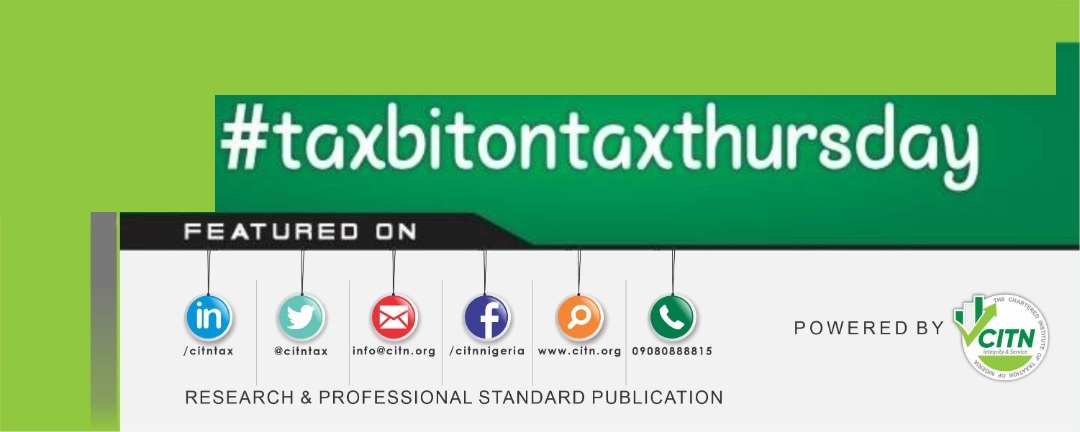- Have any questions?
- 09080888815
- 092918349
- citn@citn.org
What You Should Know About The Rivers State Value-Added Tax Law

An Overview of the Petroleum Industry Act 2021
August 25, 2021
Approved Candidates For November 2021 Associate Induction- 1st, 2nd, 3rd, 4th and 5th batch
August 31, 2021The Governor of Rivers State, Barri Nyesom Wike on the 19th of August 2021 signed into law the Rivers State Value Added Tax Law which provides for the imposition and administration of Value Added Tax (VAT) in Rivers State. The Valued Added Tax Law No. 4 of 2021 imposes VAT at 7.5% on the supply of taxable goods and services except those exempted under the Schedule to the Law. The Rivers State Internal Revenue Service (RSIRS) is empowered by the Law to administer, implement, assess, collect and account for money collected. This follows the ruling of the Federal High: Court, Port Harcourt Division on Monday August 9, 2021 in the matter of Attorney General for Rivers State vs FIRS and Attorney General of the Federation Suit No FHC/PH/CS/149/2020 which issued. an order restraining the Federal Inland Revenue Service (FIRS) from collecting VAT and Personal Income Tax (PIT) in Rivers state.
Some notable provisions of the Law are highlighted hereunder:
- .A taxable person under the Law is required to register with the Board within 6 months of the commencement of the Law or 6 months of commencement of business whichever is earlier.
- Registration for VAT under the Law is a condition for obtaining a contract from a government. ministry, agency or statutory body.
- A non-resident company that carries on business within the State is to register for the tax with the Board using the address of a person with whom it has a subsisting contract. The NRC is to include the tax in its invoice while remittance is to be made by the person to whom the goods or services are supplied in the State in the currency of the transaction.
- Refusal to register for the tax within the time specified is a punishable offence. .
- Section 16(2) mandates payment of the tax on taxable imported goods before they are cleared.
- Where a person disagrees with the amount assessed, he may object to the RSIRS. Appeal against the position of the Board lies to the Tax Appeal Commission and further appeal lies to the State High Court. It is not clear what will happen to appeals pending the setting up of a Tax Appeal Commission in the State.
- Section 15 stipulates that the tax should be remitted on or before the 21st day of the following month.
- The Schedule to the Law exempts the following goods and services. from payment of VAT:
- All medical and pharmaceutical products
- Basic food items
- Books and educational. materials
- Baby products
- Fertilizers, locally produced agricultural and veterinary medicine, farming machinery and farming. transportation equipment.
- All exports
- Plant, machinery and goods imported for use of the company are for export, otherwise, tax shall accrue proportionately on the profits of the company.
- Plant, machinery and equipment purchased for the utilization of gas in down stream petroleum operations
- Tractors, ploughs and agricultural equipment and implements purchased for agricultural purposes.
- Medical services
- Services rendered by the Community Banks, Micro. Finance Banks and Mortgage Institutions
- Plays and performances. conducted by educational institutions as part of learning.
- All exported services
- The state government shall receive 70% of the revenue from the tax while 30% shall go to the local governments
- There is no exemption for small and medium enterprises with turnover of less than N25 million as is obtainable in the federal VAT Law as amended.
Conclusion:
The Institute notes that currently the FIRS has appealed the judgement in the above-mentioned case that led to the promulgation of the Rivers State VAT law. It would be premature to issue a position at this stage considering the fact that the case is still in Court. One thing we do know is that the outcome of the case would impact greatly on the administration of VAT in Nigeria.


